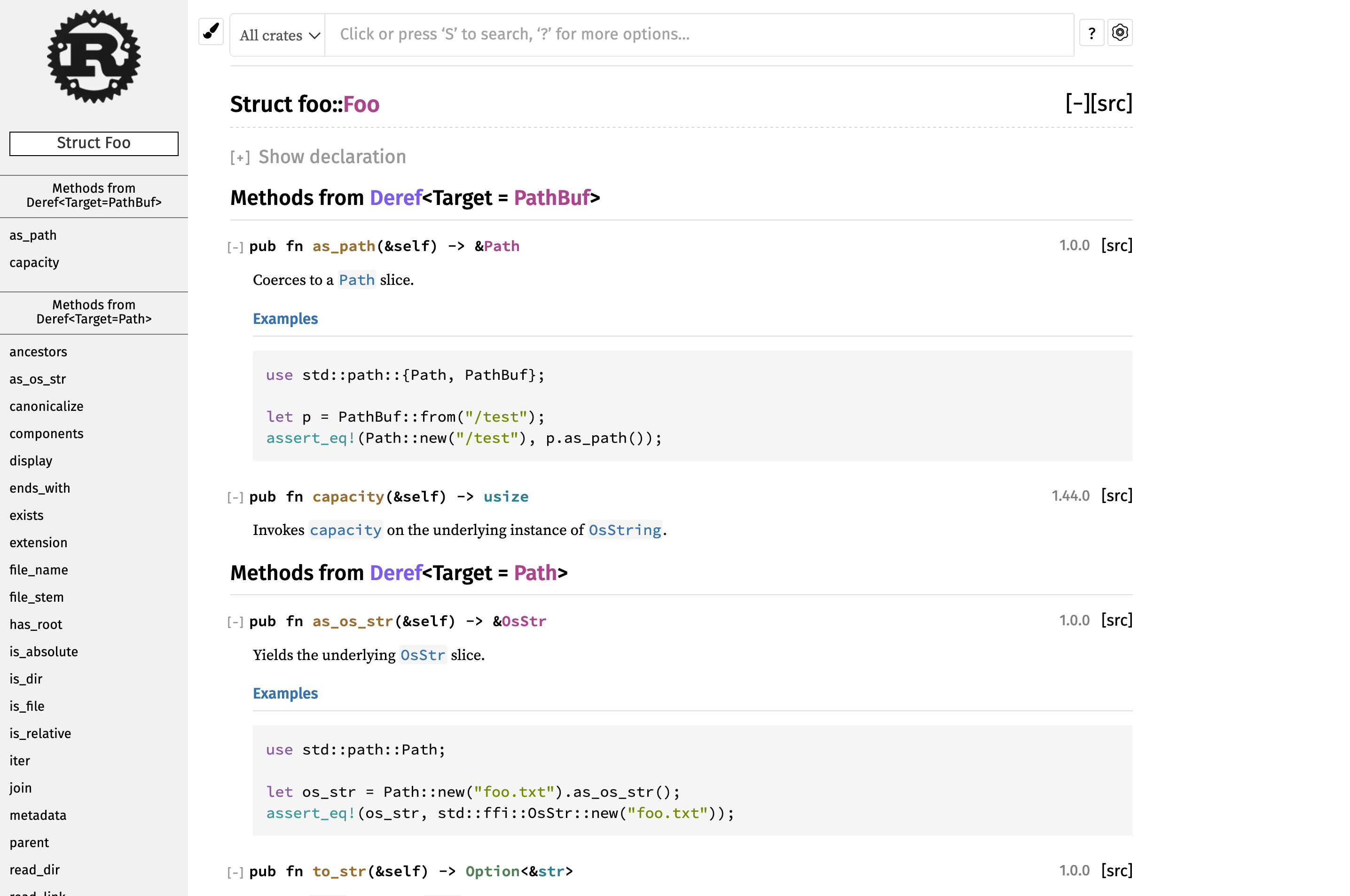rustdoc: Consolidate static-file replacement mechanism
There were a few places in rustdoc where we would take static JS or CSS and rewrite it at doc generation time to insert values. This consolidates all the CSS instances into one CSS file and replaces the JS examples with data- attributes on the rustdoc-vars div.
Demo https://rustdoc.crud.net/jsha/static-file-replace/test_docs/
r? ``@GuillaumeGomez``
I would like to rename it to `Type::Path`, but then it can't be
re-exported since the name would conflict with the `Path` struct.
Usually enum variants are referred to using their qualified names in
Rust (and parts of rustdoc already do that with `clean::Type`), so this
is also more consistent with the language.
rustdoc: Remove `ResolvedPath.did`
`ResolvedPath.did` was not actually the same as `.path.def_id()`. Instead,
`.did` referred to the `DefId` of the page to be used as a hyperlink target.
For example, a link to `Struct::method()` would use `Struct`'s `DefId` as its
`.did` field. This behavior is confusing, easy to accidentally misuse, and can
instead be obtained on-demand when computing hyperlink targets. It's also likely
part of the reason `kind_side_channel` exists. I'm currently working on some
experimental refactorings in `collect_intra_doc_links` that I believe require --
or at least benefit from -- removing `.did`.
r? `@jyn514`
We carry around a list of stylesheets that can carry two different types
of thing:
1. Internal stylesheets specific to a page type (only for settings)
2. Themes
In this change I move the link generation for settings.css into
settings(), so Context.style_files is reserved just for themes.
We had two places where we extracted a base theme name from a list of
StylePaths. I consolidated that code to be a method on StylePath.
I moved generation of link tags for stylesheets into the page.html
template. With that change, I made the template responsible for special
handling of light.css (making it the default theme) and of the other
themes (marking them disabled). That allowed getting rid of the
`disabled` field on StylePath.
- Remove border.
- Reduce size of emoji slightly.
- Remove details disclosure for unstable reason. This was inconsistent
with our other details disclosures, and the detail revealed was
usually better explained by clicking on the issue link.
This change has two advantages:
1. It makes the possible states clearer, and it makes it impossible to
construct invalid states, such as a blanket impl that is also an auto
trait impl.
2. It shrinks the size of `Impl` a bit, since now there is only one
field, rather than two.
Show all Deref implementations recursively
Fixes#87783.
This is a re-implementation of #80653, so taking the original PR comment:
This changes `rustdoc` to recursively follow `Deref` targets so that methods from all levels are added to the rendered output. This implementation displays the methods from all levels in the expanded state with separate sections for each level.

cc `@camelid`
r? `@jyn514`
It should be preferred over `def_id_no_primitives()`, so it should have
a shorter name. I also put it before `def_id_no_primitives()` so that it
shows up first in the docs.
Now that it's only implemented for `Type`, using inherent methods
instead means that imports are no longer necessary. Also, `GetDefId` is
only meant to be used with `Type`, so it shouldn't be a trait.
Move top part of print_item to Tera templates
Part of #84419.
This moves the first line of each item page (E.g. `Struct foo::Bar .... 1.0.0 [-][src]` into a Tera template.
I also moved template initialization into its own module and added a small macro to reduce duplication and opportunity for errors.
* Move call location logic from function constructor to rendering
* Fix issue with macro spans in scraping examples
* Clean up example loading logic
Documentation / newtype for DecorationInfo
Fix line number display
Serialize edition of call site, other small cleanup